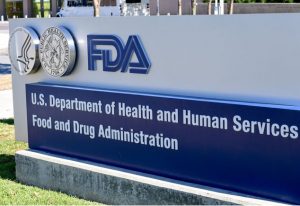
(This story has been updated to include additional industry reaction.)
In response to hemp legalization being signed into law Thursday, the U.S. Food and Drug Administration issued a reminder that CBD and THC are still not legal to add to food – but promised further review of its guidelines.
“It’s unlawful to introduce food containing added CBD or THC into interstate commerce, or to market CBD or THC products as, or in, dietary supplements, regardless of whether the substances are hemp-derived,” FDA Commissioner Scott Gottlieb wrote.
But the agency also acknowledged “substantial public interest in this topic and the clear interest of Congress in fostering the development of appropriate hemp products,” saying it will give the cannabinoid an updated review “in the near future,” with no exact date for an announcement.
Gottlieb also announced plans to consult with the CBD industry to develop “predictable and efficient” guidelines.
But the law also retains the FDA’s authority over how CBD (and hemp-derived THC) can be used.
FDA’s take on CBD
The FDA has repeatedly said that CBD and THC cannot be added to foods, drugs or cosmetics because CBD is an active ingredient in an FDA-approved pharmaceutical, Epidiolex, as well as other medications under review by the federal agency.
THC is also off-limits because it is an active ingredient in other drugs under investigation.
But the FDA has done little to stop the proliferation of CBD products flooding the marketplace in recent years, beyond sending warning letters to a handful of CBD manufacturers believed to be making illegal medical claims, implying a CBD product can treat or cure a medical ailment.
Some states, including California and New York, have followed the FDA’s lead and banned CBD in food. But even in those states, enforcement has been spotty, and CBD is being sold in an ever-growing number of food locations and even stand-alone retail stores that allow product sampling.
Industry reaction
Hemp executives said the agency’s sense of urgency about guiding a fast-growing but largely unregulated industry is long overdue.
“Finally, the FDA realizes it needs to sit down and look more seriously at cannabis and CBD,” said Stuart Titus, CEO of Medical Marijuana Inc. of Poway, California. His company makes hemp and marijuana products.
“They’ve been out to lunch on the entire cannabis movement,” Titus said. “You walk into any dispensary, and they’re making 25 different medical claims.
“The FDA, they’ve not really put together a comprehensive plan for dealing with this.”
Veronica Carpio, owner of Grow Hemp Colorado, said the industry is eagerly awaiting FDA direction.
She anticipates the agency eventually will set formal limits on over-the-counter CBD products, a move that could allow the sale of dietary supplements alongside stronger pharmaceutical preparations of CBD.
“This is a hint that the FDA wants to find a pathway through to regulating all the CBD products out there,” she said.
“But it’s also a warning that they could start cracking down on everyone, starting with the big guys, to scare the rest of us.”
Green light for other hemp products
Even as the FDA reiterated its position that CBD and THC are illegal for use in food, the agency granted additional legal protections to hemp products with almost no detectable cannabinoids.
Gottlieb announced that the FDA has designated the following products as “Generally Recognized As Safe,” a classification that clears legal confusion about using an item as a food ingredient. Those products are:
- Hempseed oil.
- Hulled hempseeds.
- Hempseed protein.
Kristen Nichols can be reached at [email protected]

